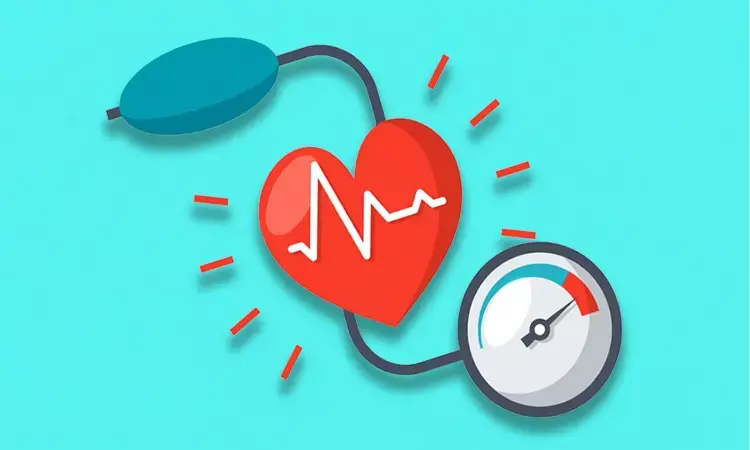- Home
- Medical news & Guidelines
- Anesthesiology
- Cardiology and CTVS
- Critical Care
- Dentistry
- Dermatology
- Diabetes and Endocrinology
- ENT
- Gastroenterology
- Medicine
- Nephrology
- Neurology
- Obstretics-Gynaecology
- Oncology
- Ophthalmology
- Orthopaedics
- Pediatrics-Neonatology
- Psychiatry
- Pulmonology
- Radiology
- Surgery
- Urology
- Laboratory Medicine
- Diet
- Nursing
- Paramedical
- Physiotherapy
- Health news
- Fact Check
- Bone Health Fact Check
- Brain Health Fact Check
- Cancer Related Fact Check
- Child Care Fact Check
- Dental and oral health fact check
- Diabetes and metabolic health fact check
- Diet and Nutrition Fact Check
- Eye and ENT Care Fact Check
- Fitness fact check
- Gut health fact check
- Heart health fact check
- Kidney health fact check
- Medical education fact check
- Men's health fact check
- Respiratory fact check
- Skin and hair care fact check
- Vaccine and Immunization fact check
- Women's health fact check
- AYUSH
- State News
- Andaman and Nicobar Islands
- Andhra Pradesh
- Arunachal Pradesh
- Assam
- Bihar
- Chandigarh
- Chattisgarh
- Dadra and Nagar Haveli
- Daman and Diu
- Delhi
- Goa
- Gujarat
- Haryana
- Himachal Pradesh
- Jammu & Kashmir
- Jharkhand
- Karnataka
- Kerala
- Ladakh
- Lakshadweep
- Madhya Pradesh
- Maharashtra
- Manipur
- Meghalaya
- Mizoram
- Nagaland
- Odisha
- Puducherry
- Punjab
- Rajasthan
- Sikkim
- Tamil Nadu
- Telangana
- Tripura
- Uttar Pradesh
- Uttrakhand
- West Bengal
- Medical Education
- Industry
High BP at any age, no matter how long you have it, may speed cognitive decline

DALLAS, - High blood pressure appears to accelerate a decline in cognitive performance in middle-aged and older adults, according to new research published today in Hypertension, an American Heart Association journal.
Nearly half of American adults have high blood pressure or hypertension. Having high blood pressure is a risk factor for cognitive decline, which includes such things as memory, verbal fluency, attention and concentration. Blood pressure of 120 mmHg - 129 mmHg systolic (the top number in a reading) or higher is considered elevated. Systolic pressure above 130 mmHg, or diastolic pressure (the bottom number) of 80 mmHg or higher is considered hypertension.
"We initially anticipated that the negative effects of hypertension on cognitive function would be more critical when hypertension started at a younger age, however, our results show similar accelerated cognitive performance decline whether hypertension started in middle age or at older ages," said study author Sandhi M. Barreto, M.D., M.Sc., Ph.D., professor of medicine at the Universidade Federal de Minas Gerais in Belo Horizonte, Brazil. "We also found that effectively treating high blood pressure at any age in adulthood could reduce or prevent this acceleration. Collectively, the findings suggest hypertension needs to be prevented, diagnosed and effectively treated in adults of any age to preserve cognitive function."
Barreto and colleagues analyzed findings from an existing study that included blood pressure and cognitive health information for more than 7,000 adults in Brazil, whose average age was about 59 years old at the study's start. The study participants were followed for an average of nearly 4 years; testing included analysis of memory, verbal fluency and executive function, which includes attention, concentration and other factors associated with thinking and reasoning.
Their analysis found:
- Systolic blood pressure between 121 and 139 mmHg or diastolic blood pressure between 81 and 89 mmHg with no antihypertensive medication use was associated with accelerated cognitive performance decline among middle-aged and older individuals.
- The speed of decline in cognition happened regardless of hypertension duration, meaning high blood pressure for any length of time, even a short duration, might impact a person's speed of cognitive decline.
- Adults with uncontrolled hypertension tended to experience notably faster declines in memory and global cognitive function than adults who had controlled hypertension.
"In addition to other proven benefits of blood pressure control, our results highlight the importance of diagnosing and controlling hypertension in patients of any age to prevent or slow down cognitive decline," Barreto said. "Our results also reinforce the need to maintain lower blood pressure levels throughout life, since even prehypertension levels were associated with cognitive decline."
According to Barreto, some of the study's limitations are the relatively short follow-up period and that the participants self-reported the hypertension diagnosis at baseline.
"Although the participants of our study are adults from Brazil, we believe that our findings are applicable to other regions. Previous studies have shown that similar unhealthy behaviors and risk factors, including hypertension, are common in the development of cardiovascular diseases in different populations across the globe," Barreto said.
Hina Zahid Joined Medical Dialogue in 2017 with a passion to work as a Reporter. She coordinates with various national and international journals and association and covers all the stories related to Medical guidelines, Medical Journals, rare medical surgeries as well as all the updates in the medical field. Email: editorial@medicaldialogues.in. Contact no. 011-43720751
Dr Kamal Kant Kohli-MBBS, DTCD- a chest specialist with more than 30 years of practice and a flair for writing clinical articles, Dr Kamal Kant Kohli joined Medical Dialogues as a Chief Editor of Medical News. Besides writing articles, as an editor, he proofreads and verifies all the medical content published on Medical Dialogues including those coming from journals, studies,medical conferences,guidelines etc. Email: drkohli@medicaldialogues.in. Contact no. 011-43720751


